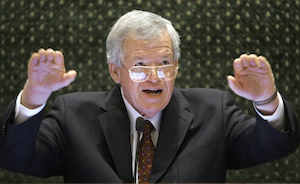City Council to weigh study of East Chattanooga grocery
Sunday, May 4, 2014
The first step in addressing the "food desert" in East Chattanooga would cost the city $12,000.
That's what community leaders in District 9 would like the Chattanooga to spend to see if any of four properties in East Chattanooga could be financially viable for a grocery store.
Councilman Yusuf Hakeem told an audience at a District 9 leadership meeting Saturday the study would cost $3,000 for each property. He expects the City Council to consider the study at its May 13 meeting.
"The council has bought into the concept, and from what we can see the administration has also, so if everything goes according to plan, no hiccups, it should be on the agenda for May 13," Hakeem said at the meeting held at the Glenwood Youth and Family Center.
Maria Noel, the Chattanooga Chamber of Commerce's director of African-American business development, said the advice to conduct a market analysis came from Jeff Olson, director of real estate with Associated Wholesale Grocers Inc.
If the data shows the community can support a store, Noel said, Olson would circulate it within the AWG network, which represents more than 2,300 retail stores in over 30 states, many of them family owned. If a store owner shows interest, the community could begin talking about incentives and plans to buy the property, she added.
Food deserts are urban areas where residents have limited access to full-service grocery items such as produce and fresh meat. Hakeem said economics is a big reason why such barren areas exist.
"When we look at the average household income, some grocery stores are not interested in coming to an area like that," he said.
But he said Chattanooga Mayor Andy Berke and the City Council have begun projects to develop the area economically so it has the necessary income to support a grocery store.
Noel added that even if the AWG report comes back negative, community leaders could use the data in their quest to supply East Chattanooga with better retail food choices.
The group gathered for the community organization's fourth-quarter meeting also heard from city transportation director Blythe Bailey and Lisa Maragnano, the executive director of CARTA, on transportation infrastructure and the possibilities for public transportation growth.
They also heard that the city has made its third application for a $27 million federal grand to address the dilapidated and narrow tunnel, which would require a $25 million city match, and that U.S. Rep. Chuck Fleischmann said a letter had been sent to the "appropriate agency" in support of the grant award.
Additionally, Nori Moss, with the youth employment committee, spoke on a project to provide about 300 at-risk youths and young adults with job training and placement opportunities. The committee has asked the Chamber of Commerce to identify businesses willing to employ at least two participants.
"We have hope today that we haven't had, we have partnership that we haven't had, and the community needs to understand what is happening, what is going on," Hakeem said in closing.
"Because, if we are determined about what our community is going to work toward, we're going to have to be engaged, and together we can do this."
Contact staff writer Alex Harris at aharris@timesfreepress.com or 423-757-6592.


